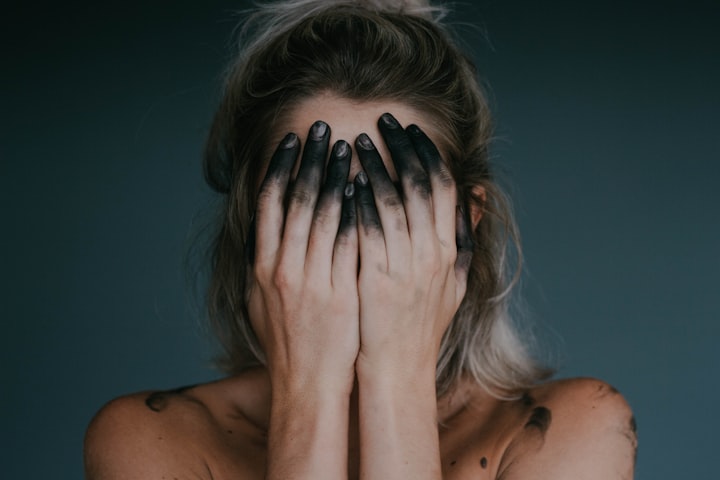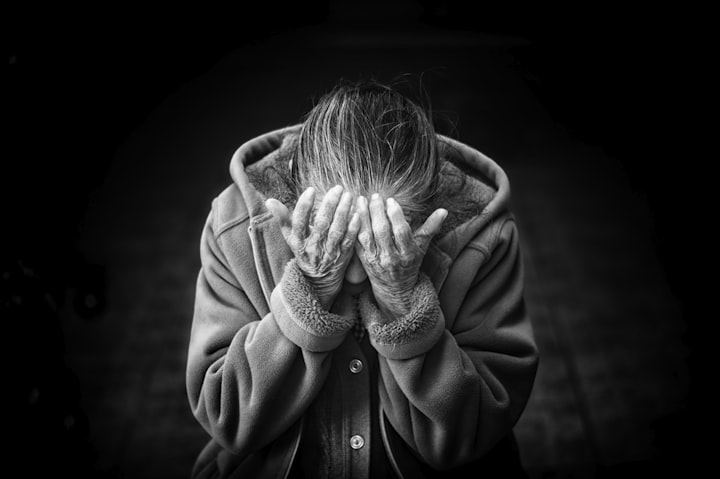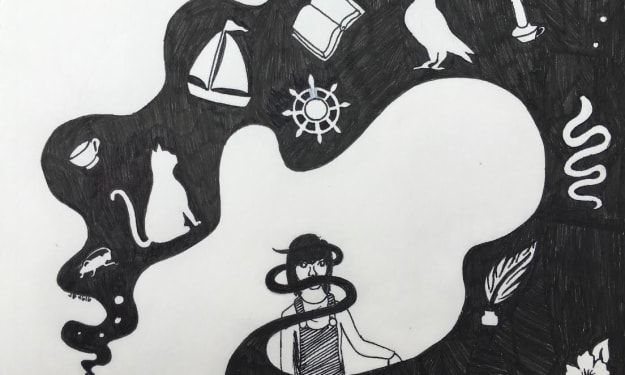The Guilt of Getting Out
Aftershocks of Abuse

When you're in an abusive situation, all you can think of is getting out.
Every fight, every tear, every scream... all of it is various representations of our brains shouting, "We have to go! Now!"
You spend days, weeks, months, or even years fantasizing of what your life will be like in the after.
After you leave, after you're free, after you get out.
In your mind, that's when your life really starts-or starts over.
But, we often forget (and outsiders don't understand) that the after isn't all roses and sunshine.
In fact, it is after you leave the abuser that some of the most difficult and confusing feelings and internal struggles arise.
Why?
If you've ever been in an abusive situation, you know it's so much more than simply walking away.
Leaving is much more difficult (and takes more work) than people know-that is why so many people never do.
Though the act may be simple, it's anything but easy.
It takes time, planning, and the strength to withstand the aftershocks.
It's the aftershocks that catch you off guard.
These are the things that make leaving-and staying away-so much harder than it seems.
It involves internal guilt and external shame. They consist of embarrassment, raw honesty, and (often intense) backlash from the abuser.
It can be punishments for stepping out of line, a sudden wave of regret, or the cold fear of the unknown.
The aftershocks are usually very confusing, extremely contradictory, and super complicated.
Because once you do get out, you think it's over.
You think you've already done the hard part because you can't imagine what it will be like on the other side.
It's like finishing the first leg of the Tour de France. You accomplished so much, yet there's still a long way to the finish line.
One thing I wasn't expecting after getting out was the guilt.
The guilt of leaving, of not being enough, and of feeling utterly broken.
I felt like a bad daughter, an overreacter, and a hypocrite.
If I wasn't perfect, then I was unfairly judging someone who hurt me.
Ask anyone whose gone "no contact" with a parent and they'll tell you the same. It goes against our biological nature.
We want to be with our parents or partners) and to love them. But when pushed too far, we have no other choice than to walk away.
You're glad to get out of the situation, but it can still be heartbreaking.
That's what makes it so difficult-it's too complicated to be fixed by just leaving. There's work on the other side.
At first, you can be giddy that you finally got away-and survived. The relief is so sweet it overwhelms everything else.
But overtime, other feelings can start to creep in.
Why? If there's one thing abusers are good at, it's rewriting history.
Part of that is getting the victim to question how bad it really was. Wonder who's really at fault.
Not only do they work to undermine you and your brain, they train you (over time) to question yourself. You end up doing the work for them.
This is where it gets difficult. Just because you left them physically doesn't mean you have emotionally.
And if your abuser has trained you to do all the work for them, then your abuser follows you, even after you're gone.
It's like the old saying goes:
"if you're raised with an angry man in your house, there will always be an angry man in your house.
you will find him even when he is not there.
and if one day you find that there is no angry man in your house-well, you will go find one and invite him in!"
-Catherine Lacey
When this happens, our lives-and decisions-are still dictated by our abusers.
It makes us feel guilty and ashamed. Not to mention the guilt and shame of knowing they're still controlling you!
One of the hardest realizations was the fact that leaving my abuser didn't undo the damage he'd already done to me.
This is where we retrace back to the beginning. Back to the "before the leaving" where you think you'll be free and healed in the after.
But moving boxes aren't the only baggage you take.
The after is where you have to unpack everything and figure out what to do with all the unwanted feelings and behaviors the abuser have you.
You have to figure out how to go on. How to rewire your brain. How to exist outside of them.
It can be harder than people think. You've spent so much energy and time fighting (and fearing) them, you've lost yourself in the process.
Not only does that add more work, but more guilt. You have to find yourself again -or, if you've been abused since birth, for the first time ever.
All of these things compound the guilt, shame, and confusion we feel.
And sometimes, the work is so hard (and we've been gone for so long), we can begin to question if it really was that bad.
If we were overreacting. If our brokenness is our fault-a weakness of character, a flaw-and not the result of trauma and abuse.
When those questions creep in, it can be very hard to push them away and remind ourselves of the truth-partly because we've been trained to question our truth for so long.
So why does all this matter?
Because we (as a culture) have this notion that "getting out" should fix everything. It should make all of our problems go away and there's total freedom on the other side.
Unfortunately, that's just not true. It's on the other side that we begin a lifetime of dealing with the after effects of abuse.
And the questions, fears, behaviors, and mental problems that finally surface after a period of survival mode can be jarring and terrifying.
All of this can bring about guilt and shame, making us feel weak, broken, and the one at-fault.
For many people, myself included, this is a surprising experience.
But, perhaps in being honest and talking about it, others can avoid (or at least decrease) the guilt they feel.
Others can know they're not alone. We can all realize it's not our fault we're struggling.
And forgiving yourself for not being perfect is where the healing can begin.
About the Creator
Ashley Tripp
I’m a freelance writer & artist. I create pieces about the things that move me with the hopes that they move my readers too. My work has been featured in multiple publications. Check out my website for more at https://msha.ke/ashleytripp






Comments
There are no comments for this story
Be the first to respond and start the conversation.